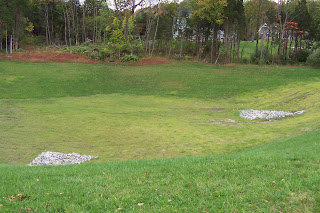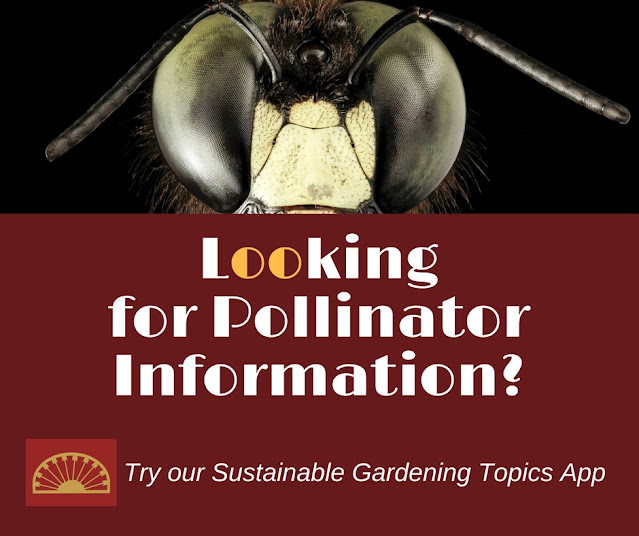Eric Maisel

Guest Blog
Today I’m interviewing my writing coach Eric Maisel, about his book The Van Gogh Blues, which was recently released in paperback. Eric is a licensed psychologist who specializes in working with creative people. Gardening creatives, whether they are landscape professionals, garden writers, or just plain folks, occasionally suffer from the same self-doubts and blocks as other creatives: Are we up to the task? Are we about to make a big, expensive mistake? Why is this project stuck in neutral? Check out Eric’s advice on how you can protect the meaning gardening holds for you, regardless of what else is going on in your life.
Lois: In Van Gogh Blues, you talk about the writer who faces the shock of the blank page and the novice painter who experiences the shock of a blank canvas. What advice would you give to a beginning gardener who is faced with the prospect of creating a garden on a bleak suburban lot in a new development?
Eric: The answer sounds like a cliché but it really isn’t: You need to trust the process. In this case, the process goes by the name of cultivation and requires knowledge, imagination, heart, the right tools, patience, trial-and-error experimentation, a real ease with making “mistakes,” a real ease with “failure” (some plants not taking hold and other plants looking much uglier than you’d anticipated), and the other elements of the process of cultivation that are, in their own way, exactly like the elements of the creative process. You can’t skip process or avoid process and somehow leap to a finished painting, a finished novel, or a finished garden. The whole trick is to accept process, to honor process, to crack through everyday resistance, and to begin.
Lois: You talk a lot about creative people making their own meaning in order to live more fulfilling lives that are less troubled by depression. How do you suggest that gardeners might go about making their gardens, or their gardening activities, more meaningful?
Eric: Meaning is a subjective choice. You can decide that you find it meaningful to work on your garden, even though the tasks seem endless and the results are not always in keeping with the effort, or you can let meaning drain out of the enterprise of gardening. It is “simply” your choice. Another way of thinking about it is that you are opting to let your garden matter to you—it may not matter to the garden magazines, it may not matter to your mate, it may not matter to someone on Mars or Venus, but it matters to you, and because it matters to you you’ll do what it takes to care for it and, taking it a step further, invigorate it with your imagination and your deep attention. I call this “making a meaning investment”: You remind yourself that something actually does matter, at least to you, and then pay conscious attention to it.
Lois: Much of gardening, like the creating of art, is a solitary activity. Sitting still and studying the garden will often induce a state of reverie, another solitary experience. These can be some of the most creative and productive times for gardeners. What is a good way for gardeners to handle family members who interrupt them, assuming that they are doing “nothing,” or just a simple mechanical task such as raking leaves?
Eric: You handle it by having agreements in place and by telling people what you need and want. This means that you must take the risk of having conversations with the folks in your household that are potentially edgy and even confrontational in nature. But it is imperative that you let people know what’s on your mind and how you would like them to treat you. Hopefully, they will agree; however, if they agree but still keep interrupting you, a typical passive-aggressive behavior, then you must have the conversation again—and again—and again. If they will not agree, then you must express your disappointment that they are treating something so important to you so rudely and so cavalierly.
Lois: Gardeners can lose themselves in preparing a planting hole, imagining what a particular blue flower will look like in a certain location, or making their “rounds,” of the gardens, in the same way that fine artists lose themselves in their paintings, or novelists enter their stories. What can gardeners do to string together more of these “being-in-the-flow” events?
Eric: The main thing is to re-imagine time. We often get it into our head that five minutes or fifteen minutes or half-an-hour isn’t “enough time” to get anything done. This is a big mistake. If we are holding a certain kind of experience, like writing our novel or making our garden rounds, as meaningful, then it is abundantly meaningful to turn to it for short periods of time during the day rather than holding that unless you have a huge expanse of time there is no reason to bother. If you have fifteen free minutes, you could certainly glance at the newspaper and take in some news you don’t need—or you could do the thing your heart actually wants to do, which is visit your garden. The trick is to consider those fifteen minutes as vast and not negligible.
To learn more about Eric’s books, and services, click here .

